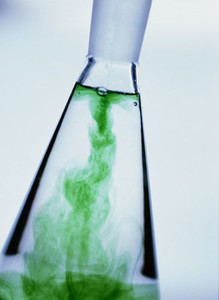Pfizer, the world’s largest pharma company, and Indian biosimilars major Biocon announced on 12 March 2012 that they had decided to end their biosimilar insulin deal due to ‘differing priorities’.
Pfizer and Biocon’s biosimilar insulin deal is off
Biosimilars/News
|
Posted 16/03/2012
 2
Post your comment
2
Post your comment

The breakdown of the deal for the worldwide commercialisation of Biocon’s biosimilar versions of insulin and insulin analogs (recombinant human insulin, aspart, glargine and lispro) which was signed in October 2010 [1], means that all rights licensed to Pfizer will revert to Biocon. All insulin distributed under the brand name Univia and Glarvia will, as of 12 March 2012, be commercially available from Biocon only and will be exclusively manufactured, supplied, marketed and supported by Biocon.
Although Ms Kiran Mazumdar-Shaw, Chairperson and Managing Director of Biocon, believes that the event is not a major blow, this is not good news for the biotech company. Biocon had expected to receive US$350 million, along with additional payments linked to Pfizer’s sales of its four biosimilar insulin products across global markets [1].
Pfizer had apparently already made a US$100 million upfront payment, which will be retained by Biocon, and the company also expects to receive a substantial part of US$100 million in escrow, in addition to other settlements.
Ms Diem Nguyen, General Manager for biosimilars at Pfizer, said that the company ‘continues to be dedicated to developing a broad portfolio of biosimilars medicines, including monoclonal antibodies and recombinant proteins products, both internally and through collaborations.’ Ms Nguyen added that ‘in addition, we will continue to be active in our own research and business development efforts for diabetes, which represents a huge unmet medical need.’
‘Globally, insulin is a US$15-billion opportunity’ and ‘there is no dearth of interest in the space’, according to Ms Shaw, who remains positive about Biocon’s possibilities for marketing in the key markets of Europe and the US without Pfizer on board.
Ms Shaw concluded by saying that ‘Biocon remains committed to delivering its Biosimilar Insulins portfolio to global markets in its endeavour to make a difference to diabetic patients across emerging and developed economies. Biocon will continue to work with its existing partners in several markets and will pursue a commercial strategy on its own and through new alliances in other markets.’
Reference
1. GaBI Online - Generics and Biosimilars Initiative. Pfizer and India-based Biocon make biosimilar insulin deal [www.gabionline.net]. Mol, Belgium: Pro Pharma Communications International; [cited 2012 Mar 16]. Available from: www.gabionline.net/Biosimilars/News/Pfizer-and-India-based-Biocon-make-biosimilar-insulin-deal
Source: Biocon, Pfizer
Posted 03/07/2012 by Jodi H, GaBI Online Editorial Office
Response to 'Correct use of terminology'
Dear Professor Declerck,
Thank you for your message and pointing out the issue of terminology. Please be advised that this news item is prepared based on Pfizer's 12 March 2012 press release which mentioned the agreement was on biosimilar versions of insulin and insulin analog products. However, we agree with your feedback and in view of the confusing terminology use, Dr Robin Thorpe and Dr Meenu Wadhwa have kindly authored a manuscript titled ' Terminology for biosimilars--a confusing minefield ' to be published online first in GaBI Journal for clarification. Please view the article via the following link: http://gabi-journal.net/terminology-for-biosimilars%E2%80%95a-confusing-minefield.html
Thank you and regards,
Jodi
Posted 16/03/2012 by Paul Declerck
Correct use of terminology
In the article (including the title) "Pfizer and Biocon’s biosimilar insulin deal is off" (March 16, 2012) the use of the wording 'biosimilar' is inappropriate. To the best of my knowledge the insulins produced by Biocon have not been subjected to a full comparability excercise with existing, approved, insulins as reference product.
For the sake of clarity to all stakeholders (patients, healthcare professionals, authorities, ...) it is important not to introduce confusion through the use of inadequate terminology.
Research
Reaching ESG goals in pharmaceutical development
What is the future for the US biosimilar interchangeability designation
General
Samsung Bioepis wins Pyzchiva case; Regeneron patent rulings threaten foreign biosimilars
Chinese biosimilars go global: growth, partnerships, and challenges
Most viewed articles
The best selling biotechnology drugs of 2008: the next biosimilars targets
Global biosimilars guideline development – EGA’s perspective
Related content
FDA approves Poherdy (first interchangeable pertuzumab) and Armlupeg (pegfilgrastim) biosimilars
EMA recommends approval for insulin glargine biosimilar Ondibta and denosumab biosimilar Osqay
FDA approves denosumab biosimilars Osvyrti and Jubereq, Boncresa and Oziltus
FDA approves aflibercept biosimilar Eydenzelt and label expansion for adalimumab biosimilar Yuflyma
FDA approves Poherdy (first interchangeable pertuzumab) and Armlupeg (pegfilgrastim) biosimilars

Biosimilars/News Posted 27/01/2026
EMA recommends approval for insulin glargine biosimilar Ondibta and denosumab biosimilar Osqay

Biosimilars/News Posted 16/01/2026
FDA approves denosumab biosimilars Osvyrti and Jubereq, Boncresa and Oziltus

Biosimilars/News Posted 07/01/2026
FDA approves aflibercept biosimilar Eydenzelt and label expansion for adalimumab biosimilar Yuflyma

Biosimilars/News Posted 05/12/2025
The best selling biotechnology drugs of 2008: the next biosimilars targets






Post your comment